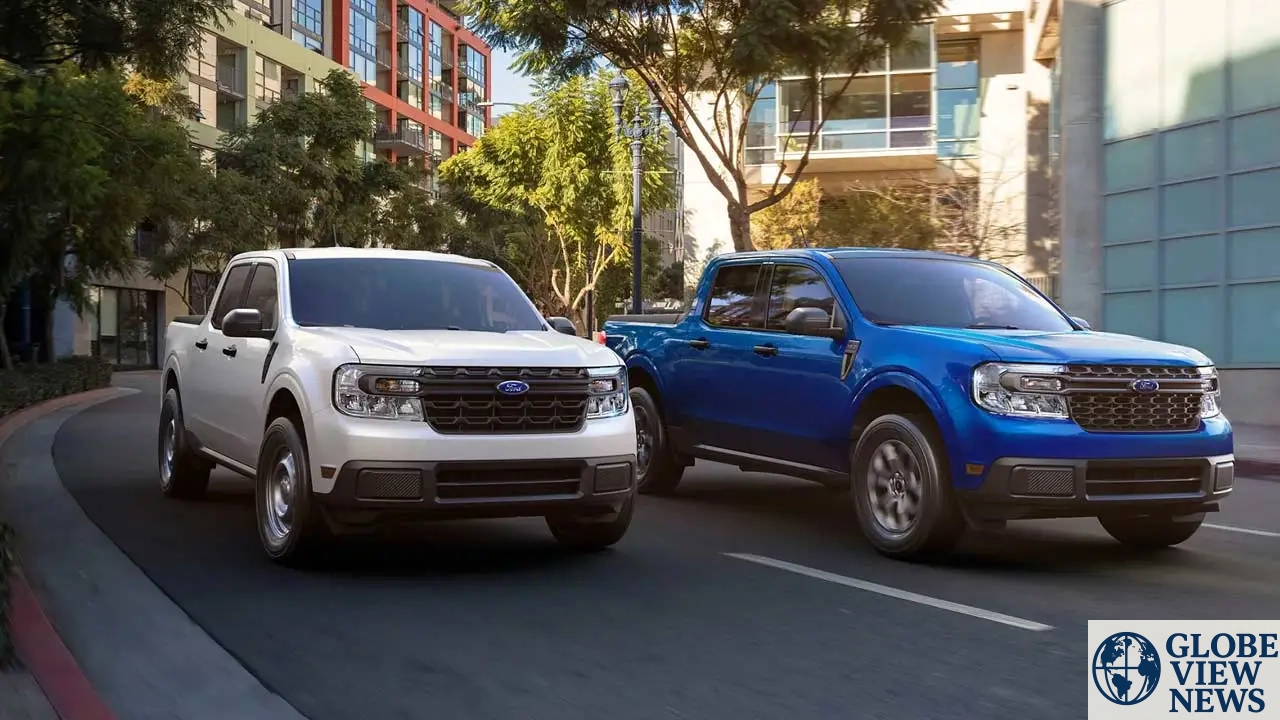In an unprecedented move shaking the automotive world, Ford recalls hundreds of thousands of Maverick pickup trucks, sparking major conversations about vehicle safety, manufacturing processes, and the future of hybrid technology. For Ford, a company steeped in more than a century of legacy and innovation, this large-scale recall is not only a logistical hurdle but also a reputational crossroads.
This article explores the many dimensions of this recall—from the technical issues at the center of the problem to consumer reactions, industry implications, and what it reveals about the broader state of modern vehicle manufacturing. As stakeholders assess the situation, it becomes evident that this is more than just another recall—it’s a case study in quality assurance, customer communication, and corporate accountability.
The Ford Maverick made headlines upon its release as a compact pickup truck designed for fuel efficiency, affordability, and accessibility. Positioned as a gateway truck for urban drivers and younger buyers, the Maverick was heralded for breaking the mold of large, gas-guzzling trucks with a hybrid-first approach.
Launched in 2021, the Maverick attracted attention for its sub-$25,000 price point, optional hybrid engine, and cleverly designed interior. It became a runaway success in Ford’s lineup, consistently exceeding sales expectations and bringing new customers into the Ford ecosystem.
But with such rapid growth, questions emerged about whether Ford could scale production while maintaining quality. These questions were answered, at least partially, when Ford recalls hundreds of thousands of Maverick pickup trucks due to a potentially serious defect.
The recall centers around an issue with the vehicle’s side curtain airbags and seatbelt pre-tensioners, safety components crucial during side-impact collisions. Ford announced that, under certain crash conditions, these systems may not deploy properly, increasing the risk of injury.
The National Highway Traffic Safety Administration (NHTSA) classified the recall as a Class A safety concern, indicating the highest level of urgency. According to documentation filed with the agency, affected models include Maverick trucks manufactured between July 2021 and March 2023.
When Ford recalls hundreds of thousands of Maverick pickup trucks, it signals more than a one-off defect—it represents a systemic problem that needs resolution, not only for current vehicles but also for future design and assembly standards.
Ford confirmed that over 320,000 Maverick trucks are affected by the recall. This number includes vehicles sold in the U.S., Canada, and Mexico, with the majority located in the United States. It’s one of the largest safety-related recalls in recent Ford history, second only to the Takata airbag crisis of the previous decade.
To contextualize, the Maverick’s total production since launch hovers around 400,000 units, meaning that nearly 80% of all Mavericks on the road could be impacted.
Because Ford recalls hundreds of thousands of Maverick pickup trucks, the logistical operation of informing customers, shipping repair parts, and scheduling dealership service appointments has become an enormous challenge for the automaker.
Ford acted swiftly in issuing the recall notice, releasing statements across news outlets, social media platforms, and its official website. Affected owners were contacted directly through the mail and by email, with instructions to schedule service at authorized dealerships.
The company stated that repairs would be done at no cost to the owner and would involve either reprogramming safety systems or replacing defective components. In rare cases, customers may receive loaner vehicles while repairs are being made.
Despite these efforts, frustration among consumers is growing. Some report weeks-long waits for dealership appointments, while others express concerns about driving potentially unsafe vehicles in the meantime. The fact that Ford recalls hundreds of thousands of Maverick pickup trucks at once puts immense pressure on the brand’s dealer network, already stretched by ongoing parts shortages and labor constraints.
Ford has always enjoyed a loyal customer base, particularly among pickup truck owners. The F-Series remains America’s best-selling vehicle for over 40 consecutive years. The Maverick was meant to expand Ford’s dominance by tapping into a younger, eco-conscious demographic.
However, this recall may test that loyalty. Online forums and social media channels are buzzing with customer concerns, questions, and complaints. While many appreciate the transparency of the recall, others feel let down, especially those who purchased the Maverick for its reputation as a modern, reliable vehicle.
One Reddit user wrote, “I bought the Maverick to downsize from my F-150 and embrace hybrid tech. Now I feel like Ford rushed this product to market.” Such sentiments echo across platforms, raising questions about whether Ford’s push for innovation came at the expense of rigorous safety testing.
If Ford recalls hundreds of thousands of Maverick pickup trucks again in the future, it could erode the goodwill the company built with this newer generation of customers.
The automotive world continues to grapple with post-pandemic supply chain disruptions, including chip shortages, delays in raw material shipments, and labor availability. These challenges may have contributed to the defects identified in the Maverick line.
Experts suggest that as automakers rushed to meet demand, especially for hybrid and electric vehicles, corners may have been inadvertently cut in the quality assurance phase. It is within this context that Ford recalls hundreds of thousands of Maverick pickup trucks, highlighting the complexity of building vehicles under global pressure.
It’s worth noting that Ford is not alone. Competitors like General Motors, Toyota, and Hyundai have all faced similar recall issues recently, reflecting an industry-wide tension between innovation and reliability.
The NHTSA has ramped up investigations into the incident. Although Ford initiated the recall voluntarily, government agencies are now working to ensure compliance, analyze root causes, and implement stricter safety testing standards moving forward.
Transportation Secretary Pete Buttigieg released a statement emphasizing the importance of manufacturer accountability and consumer safety. “When Ford recalls hundreds of thousands of Maverick pickup trucks, it becomes a moment for the industry to reflect on how safety must be prioritized at every level of production.”
This may lead to tighter regulations on emerging hybrid vehicles and pressure manufacturers to disclose quality issues more proactively.
For owners of affected vehicles, the immediate recommendation is to contact a local Ford dealership and schedule a diagnostic and repair appointment. Ford has assured that parts are being expedited and trained personnel will handle all modifications.
In the meantime, cautious driving and avoidance of high-risk traffic situations (such as highways with heavy merging or urban areas prone to side collisions) is advised. Some insurance providers may also offer temporary policy adjustments or rental reimbursements for affected vehicles.
Owners should retain documentation of all communications with Ford and dealership visits in case future legal or warranty issues arise. Although Ford recalls hundreds of thousands of Maverick pickup trucks, each individual case matters, and consumers have a right to demand prompt service and clear information.
This recall offers a sobering lesson to the entire automotive industry. As vehicles become more technologically advanced—with sensors, electronics, and AI integrations—traditional manufacturing processes need to evolve. Robust testing, real-time diagnostics, and predictive maintenance models must be integrated from the start.
For Ford, the decision to launch the Maverick as a hybrid-first truck was bold and commendable. But when Ford recalls hundreds of thousands of Maverick pickup trucks, it raises doubts about how well new platforms are being vetted before mass production.
Automakers must not only embrace innovation but do so in a way that guarantees driver safety and product longevity.
Despite the current turbulence, Ford has the resources, legacy, and leadership to recover. CEO Jim Farley has committed to transparency and pledged to personally oversee the recall resolution efforts.
The company continues to invest heavily in electrification, autonomous technology, and digital services. However, these advancements must now be balanced with lessons learned from the Maverick situation.
As Ford recalls hundreds of thousands of Maverick pickup trucks, it also has the opportunity to reaffirm its commitment to excellence and regain public trust.
Automotive recalls are not rare, but few capture the public’s attention as this one has. When Ford recalls hundreds of thousands of Maverick pickup trucks, it signals a turning point—not just for the company but for the entire industry.
The implications will be felt for years, influencing how vehicles are designed, how recalls are handled, and how customers perceive the brands they trust. For Ford, how it manages the next six months will determine whether this recall becomes a footnote in its storied history—or a chapter of transformation.

